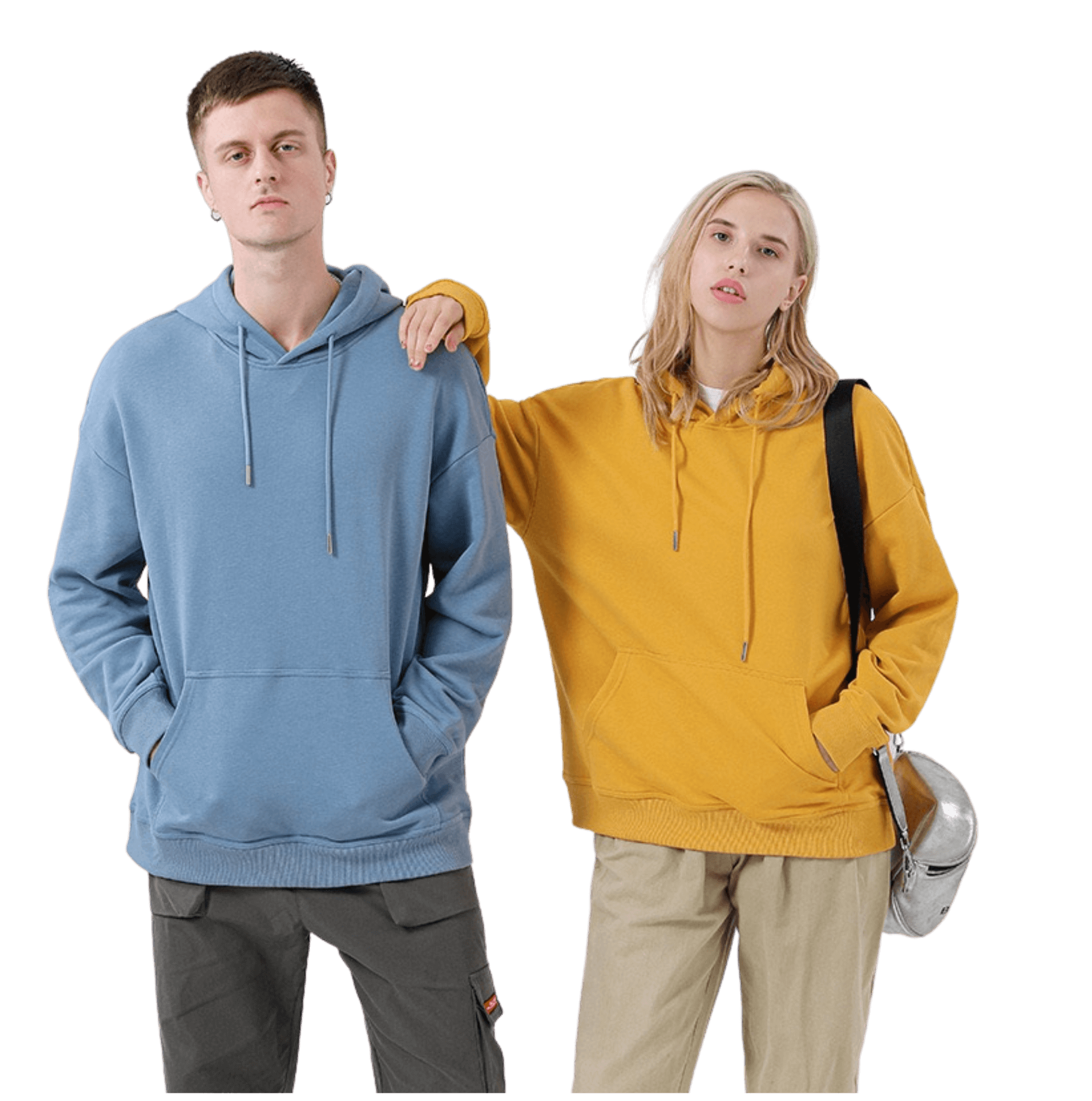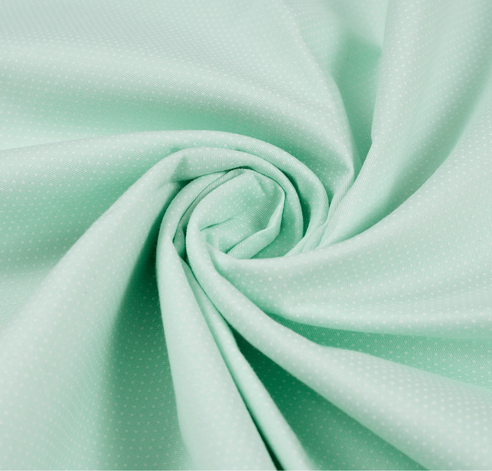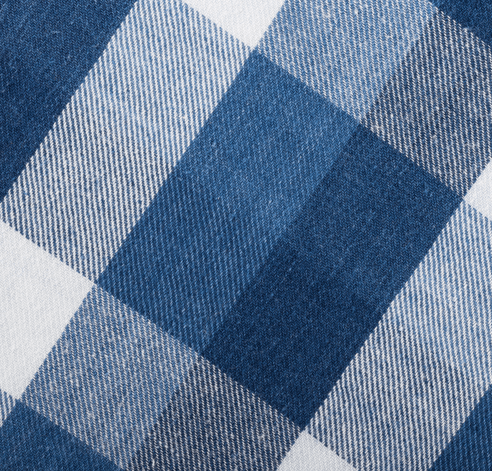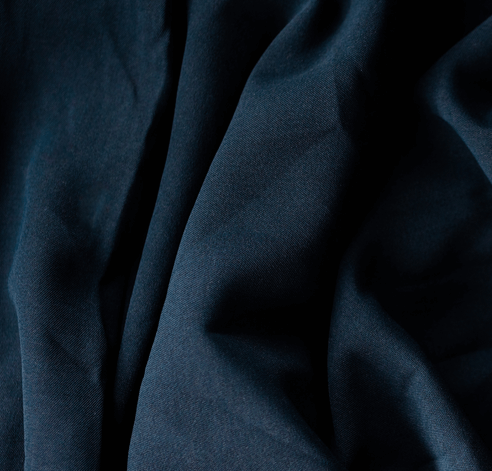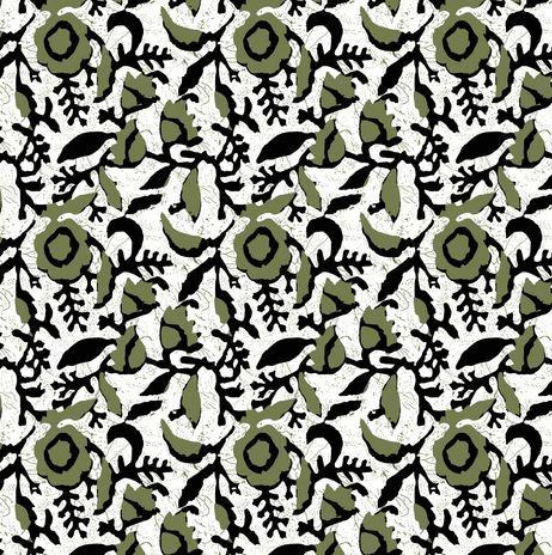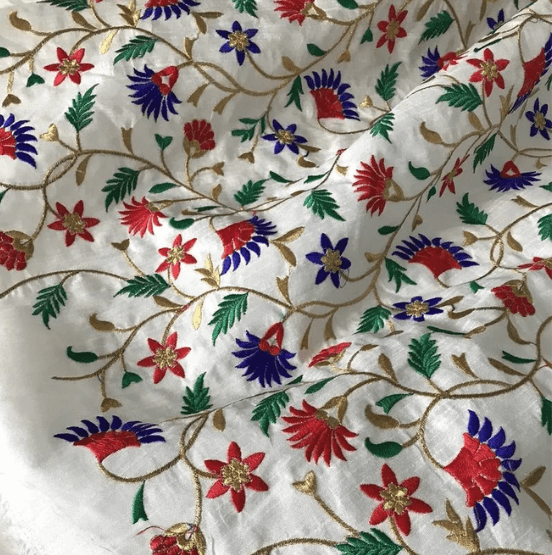1. A Brief Introduction to Boutique Clothing
Boutique clothing is a type of fashion that is designed and manufactured by small, independent labels. These types of brands are usually not associated with large, mainstream retailers instead they focus on selling their clothes through smaller, boutique stores.
Boutique clothing often has a more unique style than what is typically found in mass-produced fashion and is made with higher-quality materials. Because of this, boutique clothing is often more expensive than other types of clothing.
Boutique clothing manufacturers usually have a close relationship with the stores that sell their clothes. This allows them to better control the manufacturing process and ensure that their products meet the specific standards of the boutique.
Here’s a video that might help you in setting up a Boutique clothing store, check this out.
2. What Is Usually in a Clothing Boutique?
When you walk into a clothing boutique, what do you expect to see? Most likely, you’ll find racks of stylish clothing, organized by type and often color. But there’s more to a boutique than just the clothes on the racks. Here are some other things you might find in a boutique:
Stylish Storefront
The first thing anyone notices when they walk into a boutique is the storefront. Boutiques are usually small stores, and they often have very stylish exteriors. The store’s exterior should reflect the type of clothing that is sold inside.
Boutiques often have large windows so that passersby can see the clothes inside. The window display is usually very carefully curated to reflect the boutique’s style.
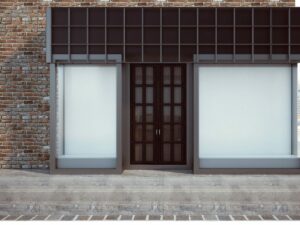
Racks of Clothing
Once anyone steps inside a boutique, they find racks of clothing. The clothing is usually organized by types, such as tops, bottoms, and dresses. Within each category, the clothing is often organized by color. This makes it easy for shoppers to find what they’re looking for.
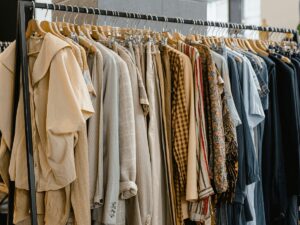
Variety of Accessories
In addition to clothing, boutiques also sell a variety of accessories. These can include jewelry, purses, belts, and scarves. The accessories are usually carefully chosen to complement the clothing in the store.
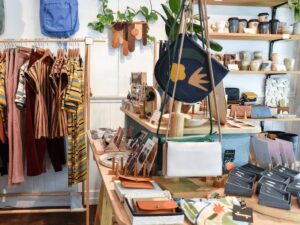
Dressing Room
Most boutique clothing stores have at least one dressing room. This is a small room where shoppers can try on clothing before they buy it. Some boutiques have multiple dressing rooms, while others only have one. The number of dressing rooms a boutique has depends on the size of the store.
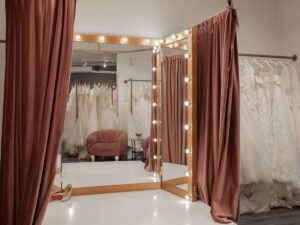
Cash Register
Of course, every boutique needs a cash register! This is where shoppers will pay for their purchases. Some boutiques also have a seating area near the cash register where shoppers can wait for their friends or family members who are still shopping.

Helpful Salespeople
Anyone who walks into a boutique, they usually greeted by a salesperson. These helpful employees can assist shoppers with finding the right clothing and sizes. They can also help anyone with any questions they have about the store or the clothing.

Stylish Interior
Boutiques often have very stylish interiors. The store’s interior should reflect the type of clothing that is sold inside. Boutiques typically have high ceilings, hardwood floors, and elegant light fixtures.
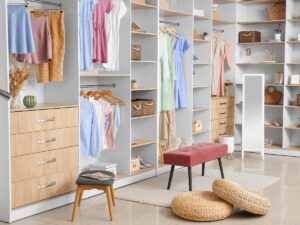
As you can see, there’s a lot more to a boutique than just the clothes on the racks. By keeping these things in mind, you’ll be able to find the perfect boutique for your shopping needs!
3. Considerations When Choosing Clothing Design for Boutique
When your boutique is just starting out, or you’re considering a rebrand, there are key factors to take into account when choosing your boutique’s clothing design. Here are a few key considerations:
Target Market?
This is arguably the most important question to answer when choosing your boutique’s clothing design. You need to have a clear understanding of who your target market is before you can start designing clothes that they will want to wear.
Are you targeting a specific age group? Gender? Profession? Knowing who your target market is will help you to make better decisions about the style, fit, and function of the clothing you design.
Brand Personality?
Your boutique’s clothing design should be an extension of your brand personality. If your boutique is fun and funky, your clothing designs should reflect that. If your boutique is more classic and sophisticated, your clothing designs should reflect that as well.
Your clothing designs should be cohesive with the overall aesthetic of your boutique so that shoppers have a consistent experience and know what to expect when they visit your store.
Type of Clothing
Boutiques typically specialize in a certain type of clothing. Before you start designing clothes, you need to decide what type of clothing you want to sell. Do you want to sell casual wear? Formal wear? Athleisure? Children’s Clothing? Once you’ve decided on the type of clothing you want to sell, you can start designing clothes that fit within that category.
Choosing the right clothing design for your boutique is an important decision that should not be taken lightly. By taking the time to consider all of the factors listed above, you can make sure that your boutique’s clothing design is a reflection of your brand and will appeal to your target market.
4. Required Equipment and Materials To Open a Boutique Clothing
Opening a boutique clothing store can be a fun and rewarding experience. However, it’s important to be prepared with the required equipment and materials before getting started. Here’s a list of what you’ll need:
| Required Equipment and Materials To Open a Boutique Clothing |
| Physical Location |
place to set up shop |
| Clothing Racks |
place to hang or display your clothes |
| Hangers |
keep clothes looking neat and tidy, but they also help save space |
| POS System |
allows you to track inventory, process sales, and issue receipts |
| Security Cameras |
deter theft and can help you keep an eye on things when you’re not around |
| Decorative Items |
mannequins, mirrors, stylish furniture, and unique racks can all help create a one-of-a-kind shopping experience for your customers |
A Physical Location
First and foremost, you’ll need a place to set up shop. This could be a storefront in a strip mall or downtown area or even a small space in a popular boutique clothing store. If you have the budget for it, leasing a retail space is always an option.
Clothing Racks
Once you have your location, you’ll need a place to hang or display your clothes. Clothing racks come in all shapes and sizes, so you’ll be able to find something that fits your space perfectly. Just make sure you have enough to accommodate all of the clothing you plan on selling.
Hangers
Hangers are a must-have for any boutique clothing store. Not only do they keep clothes looking neat and tidy, but they also help save space. There are all sorts of different hangers available, from plastic to wood. Choose the material that best fits your boutique’s aesthetic.
POS System
A POS (point of sale) system is a must for any retail business. It allows you to track inventory, process sales, and issue receipts. There are many different POS systems available on the market, so do your research to find the one that best suits your needs.
Security Cameras
While not required, security cameras are always a good idea for any retail business. They deter theft and can help you keep an eye on things when you’re not around.
Decorative Items
Last but not least, don’t forget the little touches that will make your boutique clothing store stand out from the rest. Things like mannequins, mirrors, stylish furniture, and unique racks can all help create a one-of-a-kind shopping experience for your customers.
These are just a few of the essential items you’ll need to have when opening a boutique clothing store. With the right equipment and materials, you’ll be well on your way to opening a successful boutique clothing store.
5. How To Start a Clothing Boutique in 6 Simple Steps
When it comes to starting your own clothing boutique, the process can seem daunting. But with a little bit of planning and some key steps, you can be on your way to success. Here are 5 simple steps to get you started:
Step#1 Choose Your Boutique’s Niche
The first step to starting a clothing boutique is to decide on your boutique’s niche. This will be the foundation of your boutique and will help you determine what type of clothing and brands to carry.
Do some research on popular trends and what other boutiques in your area are doing. Once you have a good understanding of your boutique’s niche, you can move on to step two.
Step#2 Create a Business Plan
Creating a business plan is an important step in starting any business, and a clothing boutique is no exception. Your business plan will help you map out your boutique’s goals and objectives, as well as how you plan on achieving them.It should also include a marketing strategy, financial projections, and a detailed description of your target market.
Step#3 Find a Manufacturer or Wholesaler
Once you have your boutique’s niche and business plan in place, it’s time to start sourcing clothing. Unless you plan on designing and making all of the clothing yourself, you’ll need to find a manufacturer or wholesaler that can provide you with the garments you need. Do some research online and look for wholesale suppliers for boutique clothing that fit your style and budget.
Step#4 Choose a Location
Finding the perfect location for your boutique is essential to its success. You’ll want to consider things like foot traffic, parking, demographics, and competition when choosing a location. Once you’ve found the perfect spot, it’s time to start setting up shop.
Step#5 Market Your Boutique
The next step in starting your boutique is to market it to your target audience. There are a number of ways you can do this, including online marketing, social media, and traditional advertising. Be sure to use a mix of marketing strategies to reach the widest audience possible.
Step#6 Open Your Boutique
After you’ve completed all the necessary steps, it’s finally time to open your boutique! This is an exciting time, but it’s also important to be prepared. Make sure you’re prepared for the grand opening by having enough inventory on hand, a well-trained staff, and a solid marketing plan in place.
Opening a clothing boutique doesn’t have to be a daunting task. By following these simple steps, you’ll be on your way to success in no time.
6. Costs To Start Your Own Boutique
Starting your own boutique can be a great way to get into the fashion industry and start your own business. However, before you get started, it’s important to know how much it will cost to get your boutique up and running.
Generally, the start-up costs for a boutique can be broken down into three main categories inventory, marketing, and store fixtures. These costs can range from $5,000 to $50,000 depending on the size and scope of your boutique.
When starting your own boutique, it’s important to have a clear idea of how much you’re willing to spend on each category. This will help you create a boutique that fits your budget and meets your needs.
Make sure to do your research and understand the costs associated with starting a boutique before you get started. This will help you create a successful boutique business plan and avoid any financial pitfalls.
7. Successful Boutique Clothing Skills and Traits
When it comes to boutique clothing, there are certain skills and traits that can help you succeed. Here are some of them:
Creativity
Coming up with new and unique designs is key in the boutique clothing industry. You need to be able to stand out from the rest in order to attract customers.
Business Acumen
Business acumen is always important in any industry, but it’s especially important in the boutique clothing industry. You need to be able to manage your inventory, finances, and marketing efforts in order to be successful.
Fashion Sense
Of course, you need to have a good sense of fashion in order to be successful in the boutique clothing industry. Stay up-to-date with the latest trends and make sure your designs are stylish and flattering.
Sewing Skills
If you’re planning on selling boutique clothing, it’s important to have sewing skills. This way, you can create your own designs or make alterations to existing garments.
Passion
Last but not least, boutique clothing requires passion. If you’re not passionate about fashion, it will be difficult to succeed in this industry. Make sure you love what you do and have a genuine interest in helping your customers look their best.
These are just a few of the skills and traits that can help you succeed in boutique clothing. If you have these qualities, you’re well on your way to success. Keep honing your skills and stay up-to-date with the latest fashion trends to take your boutique to the next level.
8. How To Work With Boutique Clothing Manufacturers
If you’re looking to start or expand your boutique clothing business, working with private label clothing manufacturers for your boutique clothing is a great way to get high-quality, stylish garments at a fraction of the cost of designers.
However, it’s important to know how to work with boutique clothing manufacturers in order to get the best possible results. Here are a few tips on how to find clothing manufacturer and how to work with boutique clothing manufacturers:
Be Clear About Your Vision
When you’re working with boutique clothing manufacturers, it’s important to be clear about your vision for the garments. This means having a clear idea of the style, fit, and feel that you’re going for.
The better you can communicate your vision, the more likely it is that the manufacturer will be able to produce garments that meet your expectations
Know Your Budget
Boutique clothing manufacturers typically charge by the piece, so it’s important to know your budget before you start working with them. This will help you avoid overspending and ensures that you’re getting the best possible value for your money.
Set a Realistic Timeline
Another important factor to consider when working with wholesale clothing boutique suppliers is your timeline. It’s important to set a realistic timeline that allows the manufacturer enough time to produce high-quality garments. Rushing the process can often lead to lower-quality garments, so it’s best to avoid this if at all possible.
Communicate Regularly
Finally, it’s important to communicate regularly with your boutique clothing manufacturer. This will help ensure that there are no miscommunications and that you’re both on the same page throughout the process.
These are just a few tips to keep in mind when working with boutique clothing manufacturers. By following these tips, you can ensure that you’re getting the best possible results for your boutique clothing business.
If you’re looking for high-quality clothing, consider working with Hongyu Apparel. We’re a leading boutique clothing manufacturer with years of experience and offer options for both private labels and custom clothing. We can help you create stylish, fashionable garments that your customers will love. Contact us today to learn more about our services.
9. 5 Helpful Tips When Sourcing Your Clothing Manufacturer
As a boutique clothing store owner, you know that finding the right clothing manufacturer is essential to the success of your business. You want a manufacturer that is able to produce high-quality clothing at a reasonable price, and one that is responsive to your needs and requests.
Here are a few tips to help you on finding the right clothing manufacturer for your boutique:
#1 Do Your Research
The first step in finding a clothing manufacturer is to do your research. You should create a list of potential garment manufacturer, and then narrow down your options based on your specific needs and requirements. When you are doing your research, be sure to read online reviews and compare prices to get a sense of each manufacturer’s quality and pricing.
#2 Consider Their Capacity
When you are considering different clothing manufacturers, it is important to think about their capacity. Can they handle your boutique’s production volume? Do they have the ability to scale up if your business grows? Make sure you choose a manufacturer that can accommodate your current and future needs.
#3 Evaluate Their Quality
Of course, you want to make sure that the clothing manufacturer you choose is able to produce high-quality clothing. The best way to evaluate a manufacturer’s quality is to order samples of their work. Once you receive the samples, take a close look at the construction, materials, and overall finish of the of the readymade clothing.
#4 Consider Their Location
Another important factor to consider when choosing a clothing manufacturer is their location. If you are looking for a quick turnaround, it is best to choose a manufacturer that is located close to your boutique. This way, you can avoid long shipping times and additional costs.
#5 Ask for Referrals
If you know other boutique owners, ask for referrals. They may have already found a great clothing manufacturer that would be a perfect fit for your business. Getting a personal recommendation can be a great way to find a quality manufacturer.
These are just a few tips to keep in mind when you are sourcing your boutique’s clothing manufacturer. By taking the time to find the right manufacturer, you can ensure that your boutique has high-quality clothing that your customers will love.
If you’re looking for a reputable one, Hongyu Apparel is a great option. We are wholesale boutique clothing suppliers with years of experience in the clothing industry, offering a wide range of products including t-shirts, swimwear, streetwear, sleepwear, and many more at competitive prices. Our team is dedicated to providing high-quality clothing at a reasonable price, and we are always responsive to our client’s needs and requests. Contact us today to learn more about our services.
10. Common Mistakes When Staring a Boutique and How to Avoid Them
Opening a boutique is an exciting endeavor. However, as with any new business, there are certain pitfalls that can trip you up if you’re not careful. Here are some common mistakes made when starting a boutique, and how to avoid them:
Not Doing Your Research
Before you open your boutique, it’s important to do your research and know your target market. What type of clothing do they want? What type of prices are they willing to pay? Knowing this information will help you stock your store with the right items and price them correctly.
Not Having a Clear Vision
It’s important to have a clear vision for your boutique before you open its doors. What is the overall look and feel you want to create? What type of experience do you want your customers to have? Having a clear vision will help you make decisions about everything from the layout of your store to the clothes you stock.
Not Having Enough Start-Up Capital
One of the most common mistakes made when starting a boutique is not having enough money to get things off the ground. It’s important to have enough capital to cover your initial costs, such as inventory, rent, and marketing. Otherwise, you may find yourself struggling to keep your boutique afloat.
Not Paying Attention to Trends
Fashion is an ever-changing industry, which means you need to be on top of the latest trends if you want your boutique to be successful. Pay attention to what’s popular in the fashion world and stock your store accordingly. This way, you’ll always have the latest and greatest items that your customers will love.
Not Promoting Your Boutique
Once you’ve opened your boutique, it’s important to let people know it exists! Promote your store through marketing and advertising. Create a strong social media presence. And make sure your boutique is listed in online directories. The more people know about your boutique, the more likely they are to shop there.
These are just a few of the common mistakes made when starting a boutique. By avoiding these pitfalls, you’ll be well on your way to success for your new business.
Dive Deeper Into Our Resources
Looking for more diverse product options? Browse through our handpicked selections:
For some insightful reads, we’ve curated a list of recommended articles just for you:
Still haven’t found what you’re looking for? Don’t hesitate to
contact us. We’re available around the clock to assist you.
11. Conclusion
Boutique clothing manufacturers are a great option for start-up designers. Not only do they have the ability to produce small quantities, but they also offer design and production consultation services that can help you bring your vision to life.
So if you’re a startup brand and interested in working with a clothing manufacturer, contact us at Hongyu Apparel. We would be happy to discuss our services with you and answer any questions you may have.

